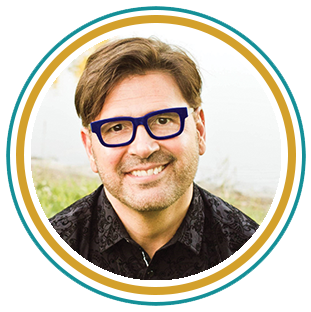Your mother taught you to say “thank you” as part of an overall, good-mannered approach to life. What specific studies in the areas of neuroscience have discovered is gratitude is more than being polite. It’s good for you. Benefits include improved moods, reduced worry, feeling more connected to others, improved sleep, better physical health, and being more likely to engage in healthy activities.[i]
It’s a part of thriving in this world. And yet, it sounds so obvious, you can’t believe this is a part of clinging to God.
First a word about all this brain science. A question might be posed: Do scientific discoveries about how we think, feel, and respond in times of crisis take away from the beauty of God’s word? Not one bit. He is, after all, the same Creator who knit you together in your mother’s womb—fearfully and wonderfully so.[ii]
Hopefully such references to how our brains work will serve as handles for appreciating the practical wisdom of God’s word. They might also motivate the less inclined. Every bit of this points back to our glorious God, who knows how a flourishing, thriving, not-settling-for-less life works. These are tricks. They work because God made us this way and he knows what he’s doing.
He also knows what will happen when we practice gratitude.
It is an integral way we wrap ourselves around his strength.
Don’t Just Count ’Em, Name ’Em
Lyrics emerge from a childhood of singing hymns I didn’t much like or appreciate. At first, it’s hard to give this one much thought because of the countless times I heard it:
When upon life’s billows you are tempest-tossed,
When you are discouraged, thinking all is lost,
Count your many blessings, name them one by one,
And it will surprise you what the Lord has done.[iii]
The tune may not work for me, but the words are spot on: It’s important to name your blessings. Perhaps in a journal. Perhaps as a morning routine. Certainly in our prayers and in our conversations wherein we celebrate God. With trusting determination, we set our gaze on that for which we are grateful. Even getting in the habit of looking for something is something. Korb writes:
Remembering to be grateful is a form of emotional intelligence. One study found that it actually affected neuron density in [key regions of] the prefrontal cortex. These density changes suggest that as emotional intelligence increases, the neurons in these areas become more efficient. With higher emotional intelligence, it simply takes less effort to be grateful.[iv]
Even in Jeremiah’s heartache, he came back to the faithfulness of Yahweh. It had become habit. Part of what God was teaching Israel and her prophets was that gratitude is not only an antidote to worry. It is a fundamental ingredient to enduring, the act of recalling and recounting the many blessings from the Eternal One who had lavished his love on them.
This is why Israel was called again and again to remember the great act of redemption that anchors the Hebrew Scriptures. The story of the Exodus is the greatest blessing they’d ever received as a people. Without it, their history would fade into obscurity. As a nation, they were instructed again and again to remember and retell the story of their rescue.
All throughout the Exodus story, the verbs are active and physical and dramatic. It is God who’s doing all the work. Back in the middle of the struggle between Pharaoh and Moses in Exodus 6, God says “I will free you from being slaves . . . I will redeem you with an outstretched arm . . .”[v] The word translated as free has a kind of abruptness to it in the Hebrew.[vi] It is the picture of physically grabbing someone to pull them out of danger.
And he will do this with an outstretched arm.
For Personal Reflection
Name one thing that brought you joy today. Give thanks to God.
Sources
[i] Korb, Upward Spiral, 151.
[ii] Psalm 139:13-14.
[iii] Johnson Oatman Jr., “Count Your Blessings,” 1897, https://library.timelesstruths.org/music/Count_Your_Blessings/.
[iv] Korb, Upward Spiral, 160.
[v] Exodus 6:6.
[vi] The Hebrew verb natsal implies an abrupt physical act of grasping or seizing. For more information see Walter Brueggemann, Theology of the Old Testament: Testimony, Dispute, Advocacy (Minneapolis: Fortress Press, 1997), 174.




GOD is grateful, each day.